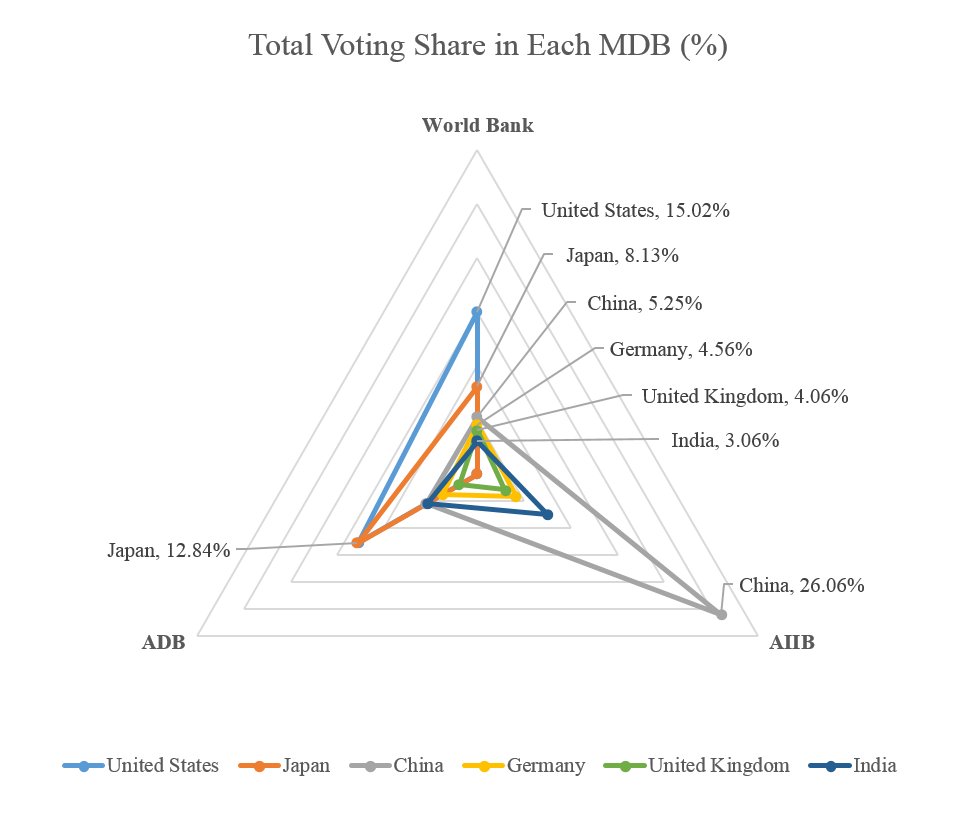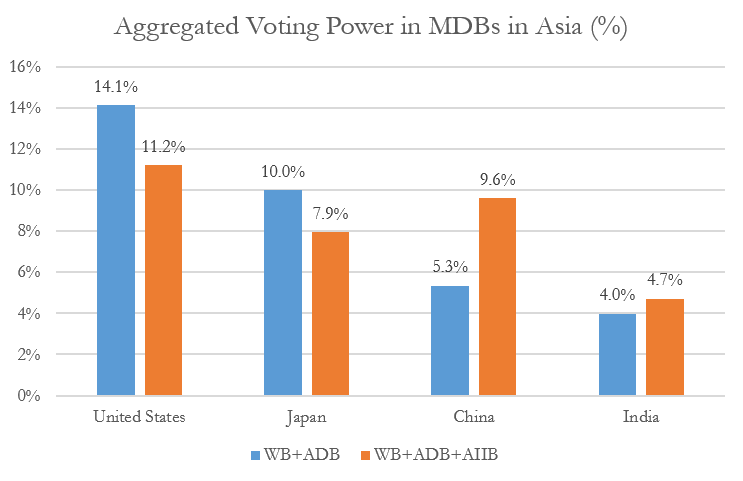In our previous post, we calculated voting power in the Asian Infrastructure Investment Bank (AIIB), using the formula published in the bank’s articles of agreement. Here we compare AIIB voting power to that of the World Bank and Asian Development Bank (ADB), the other two major multilateral development banks MDBs) active in Asia.
China is a much larger leading shareholder in the AIIB than either the United States or Japan is in the other MDBs. In fact, China’s voting power of 26.06% is slightly more than the combined voting power of the United States and Japan in the ADB.
Voting power has very practical applications within these institutions in determining how much say each shareholder has over operations. In this way, it can serve as a concrete measure of a country’s “influence”, an otherwise vague concept.
We provide a measure of four leading countries’ influence across the MDBs active in Asia, and show how relative influence has changed as a result of the AIIB. As depicted below, “aggregated voting power” simply expresses total voting power across the MDBs weighted by the size (capital) of each institution. With the creation of the AIIB, China has surpassed Japan in the region’s MDBs, although it still falls short of the United States in total voting power.
To the degree Japan continues to consider membership in AIIB, this question of regional influence is no doubt paramount, and the loss in relative power depicted here is likely a cause of concern for both Japan and the United States. Going forward, growth in the AIIB could further erode the US and Japanese positions, particularly if capital expansions at the other institutions do not keep pace.
CGD blog posts reflect the views of the authors, drawing on prior research and experience in their areas of expertise.
CGD is a nonpartisan, independent organization and does not take institutional positions.




